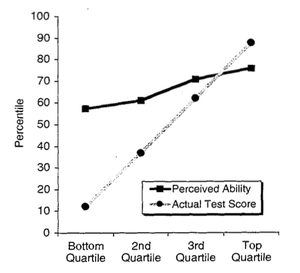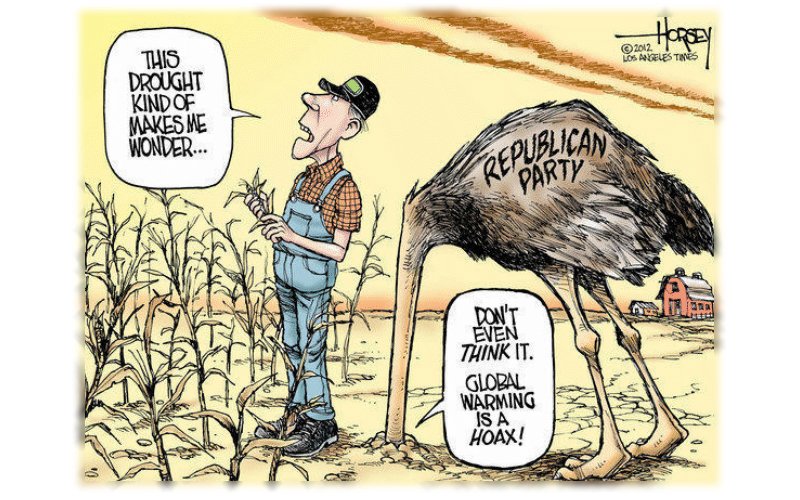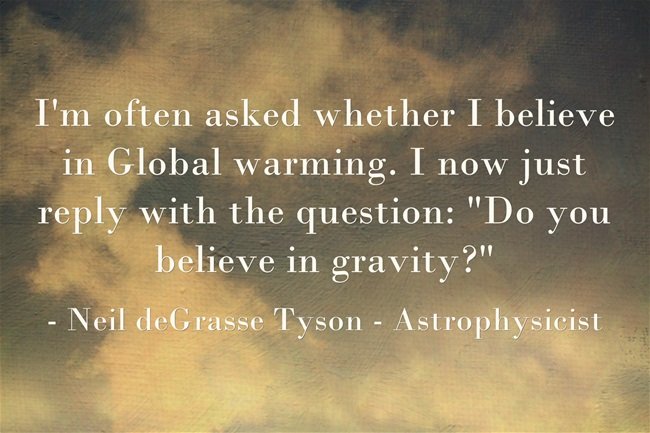“It ain’t the things you don’t know which will get you into trouble, but the things you know for sure which just ain’t so – Mark Twain”
Donald Rumsfeld famously said “there are known knowns, known unknowns and unknown unknowns”. Or in the sardonic wit of Mark Twain: “It ain’t the things you don’t know which will get you into trouble, but the things you know for sure which just ain’t so”. Neither Rumsfeld, nor Twain were referring to climate science, but this knowledge dichotomy is especially relevant to the climate change debate as Charles Nagy explains.
There is a whole legion of people who have recently re-discovered science – a topic they probably hated at high school, and were not very good at; but in which they are now intensely interested because Global Warming has become a ideological litmus test for political ‘conservatives’. In the US, if you are a Republican, odds are high you are a climate change denier. Here in Australia, the Liberal party has become the de facto party of denialism.
These people variously opine that Global Warming is a hoax, that scientists have betrayed science and are engaged in worldwide massive fraud, and have misunderstood and misapplied the scientific method. Even when shown conclusive, documentary proof that they are mistaken, they rarely admit even the possibility that they could be wrong. They are indeed ‘deniers’ rather than skeptics. A skeptic would be prepared to change his or her mind when confronted with evidence. I recently had an online discussion – an argument, rather – with a Republican friend of mine who is a vocal critic of climate science.
The subject of our ‘discussion’ was satellite temperatures, which tend to show lower rates of planetary warming than surface temperatures. For this reason they are favoured by climate skeptics who want to claim the observed warming has been exaggerated by the ‘alarmists’. My friend claimed that satellite derived temperatures are more accurate than surface temperatures. I pointed out to him that satellites are actually inherently less accurate because they do not measure air temperatures directly, but are tuned to microwaves given off by oxygen atoms in the atmosphere (at around 10,000 to 12,000 ft altitude). Since they are not surface temperatures, and as most people don’t live up there, they are irrelevant to a debate about Global Warming.
To my surprise, my friend continued to insist that satellites do measure surface temperatures, and he could not be dissuaded.
As a bit of background, the technical term for the height band that these satellites measure is ‘Temperature Lower Troposphere’ (TLT), where Lower Troposphere refers to the previously mentioned 10 to 12,000 ft level. In fact, satellites cannot measure surface temperature, even in principle, because there is too much scattering of microwaves from the surface. To be fair to my friend the dictionary definition of the Troposphere is ‘the lowest layer of Earth’s atmosphere’, which, of course, starts at sea level. This is indeed true. However, like many other scientific terms have a far narrower definition than what is in a dictionary. You cannot learn science from a dictionary.
In fact, meteorologists have, since the second world war – well before anyone was interested in Global Warming – been referring to Lower, Mid and Upper Troposphere charts. These charts generally refer to the 850 millibar (mb), 500 mb and 300 mb air pressure levels (air pressure decreases with altitude). Definitely not surface then, since for aviation purposes, surface air pressure is defined as 1013 millibars. I studied Physics and Meteorology at University and was a military pilot with the RAAF, so very well acquainted with air pressure charts. However, even when appraised of these facts, my friend still refused to back down and said he was going to check with a ‘pilot friend’ (sic)!
The Knowledge Dichotomy
Clearly, this person thought he knew a lot more about satellite temperatures than he actually did, and being convinced of this, was not prepared to listen to any argument or facts to the contrary. He did not know that he did not know enough about the topic to have an informed opinion, being in effect, ignorant of his own ignorance. A (not so) recent scientific paper by Cornell psychologists David Dunning & Justin Kruger, attempts to explain this phenomenon. It turns out that the less people know about a topic, the more they think they know, and the more they know, the less they think they know. Why do experts devalue their knowledge? Because they typically find these tasks easy, so they think they must be easy for others too, thus underestimating their own performance.
 The ‘Dunning-Kruger‘ effect doesn’t just apply to climate science. The point is that the knowledge and intelligence required to be good at a task are often the same qualities needed to recognise that one is not good at that task. This, in a nutshell, describes the vast majority of ‘climate skeptics’.
The ‘Dunning-Kruger‘ effect doesn’t just apply to climate science. The point is that the knowledge and intelligence required to be good at a task are often the same qualities needed to recognise that one is not good at that task. This, in a nutshell, describes the vast majority of ‘climate skeptics’.
These self identified ‘skeptics’ are absolutely certain about things they actually know very little about, in Dunning and Kruger’s words:
“This overestimation occurs, in part, because people who are unskilled in these domains suffer a dual burden: Not only do these people reach erroneous conclusions and make unfortunate choices, but their incompetence robs them of the metacognitive ability to realise it.”
But back to my friend; in desperation I directed him to the actual web page of the scientific satellite study in question, which explained in tortuous detail how satellite temperatures are measured (hint, it is nowhere near as simple as reading a thermometer). He was completely overwhelmed and wrote back “how is anyone supposed to understand this stuff anyway?”.
Well, as a non-scientist you aren’t expected to understand ‘this stuff’. However, one hopes that you are smart enough to understand that you don’t understand, and accept the considered opinions of the experts who do, rather than insist that your ignorance is as good as their reasoned scientific knowledge.
So instead of getting your science from politically motivated news outlets or right wing blogs on the internet, you might consider accepting the majority scientific opinion. If you prefer a quack remedy for cancer which you found on a blog on the web, as opposed to professional medical opinion, you may want to ask yourself why it is, that those bloggers who went down that quack remedy road previously, are no longer blogging.
But I am.




